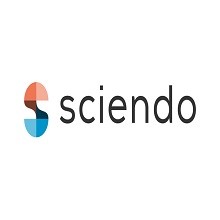
رابطه بین پیشرفت تحصیلی و هوش عاطفی در دانشجویان ایرانی
چکیده
پیشرفت تحصیلی یکی از مهم ترین مفاهیم در حوزه آموزش محسوب می گردد. اگر چه هوش هیجانی، به عنوان یک عامل کلیدی در پیشرفت تحصیلی، در مطالعات مختلفی مورد مطالعه قرار گرفته اما با این وجود نتایج به دست آمده با یکدیگر هماهنگی نداشته و این موضوع همچنان مورد بحث است. به منظور پر کردن این خلاء اطلاعاتی، پژوهش حاضر با استفاده از روش متاآنالیز انجام پذیرفت. به منظور انجام یک جستجوی کامل برای یافتن مقالات مربوطه در چارچوب ایران، کلیدواژگانی مانند: "هوش هیجانی" و (هیجانی یا هوش) و "پیشرفت تحصیلی" یا "وضعیت علمی" و "دانشجو" و "ایران"، بدون هیچ گونه محدودیتی در تاریخ و یا زبان در سایت های ذیل: Medline، Scopus، ScienceDirect، Web of Knowledge، Ovid، Wiley، Google Scholar و پایگاه داده های فارسی از جمله: SID، Irandoc و Magiran مورد استفاده قرار گرفتند. از مدل اثرات تصادفی برای ادغام آماری استفاده شد. در مجموع 23 مقاله برای ورود به متاآنالیز انتخاب شدند. نتایج تلفیقی، رابطه معنی داری را بین هوش هیجانی و پیشرفت تحصیلی (همبستگی تلفیقی = 0.157؛ CI 95٪، 0.231-0.081). شاخص Q کوکران (145:126 = Q، 0.000 = p) و 84.84٪ = I^2 بیانگر ناهمگنی بالایی در میان مقالات وارد شده در متاآنالیز بود. در آنالیز زیرگروه، دانشجویان دانشگاه های دولتی در مقایسه با دانشگاه های خصوصی، اثر مختصرتری داشتند (0.177؛ CI 95٪، 0.267-0.085). هیچ نشانه ای دال بر تورّش انتشار مشاهده نگردید. همبستگی ضعیفی بین هوش هیجانی و پیشرفت تحصیلی در زمینه دانشجویان ایرانی مشاهده گردید. به نظر می رسد که رابطه این مفاهیم تحت تاثیر عوامل دیگری در این محیط قرار دارد، بنابراین مساله مزبور نیازمند انجام مطالعات بیشتری در این زمینه می باشد.
SUMMARY
Academic achievement is one of the most important concepts in the field of education. Although emotional intelligence, as a key factor in academic achievement, has been studied in various studies, yet the results obtained are not in harmony with each other and the topic is yet under debate. In order to fill in this informational vacuum, the present research was undergone using a meta-analysis method. In order to make a thorough search to find articles within the Iranian context, key words such as “Emotional Intelligence" AND (Emotional OR Intelligence) AND "academic achievement" OR "academic status" AND "Student" AND "Iran", were used without limitation in dates or language in the following sites: Medline, Scopus, ScienceDirect, Web of Knowledge, Ovid, Wiley, Google Scholar, and Persian databases such as SID, Irandoc and Magiran. The random effect model was utilized for statistical pooling. A total of 23 articles were chosen to enter the meta-analysis. The pooled results showed a meaningful relationship between emotional intelligence and academic achievement (Pooled Correlation = 0.157; 95% CI, 0.081-0.231). The Cochran Q (Q = 145:126, p = 0.000) and I2 = 84.84% index indicated a high heterogeneity among the articles entering the meta-analysis. In subgroup analysis, the students in state universities had more summary effect (0.177; 95% CI, 0.085 - 0.267) compared to the ones studying in private ones (0.118; 95% CI, 0.024-0.255). No sign of publication bias was found. A weak correlation was seen between emotional intelligence and educational achievement in the context of Iranian university students. It seems that the relationship of these concepts may be affected by other factors in this setting, so this calls for further studies in this field.
چکیده
مقدمه
روش ها
استراتژی جستجو
انتخاب مطالعه
استخراج داده ها
تجزیه و تحلیل آماری
نتایج
بحث
نتیجه گیری
SUMMARY
INTRODUCTION
METHODS
Search strategy
Study Selection
Data Extraction
Statistical analysis
RESULTS
DISCUSSION
CONCLUSION
- ترجمه فارسی مقاله با فرمت ورد (word) با قابلیت ویرایش، بدون آرم سایت ای ترجمه
- ترجمه فارسی مقاله با فرمت pdf، بدون آرم سایت ای ترجمه
